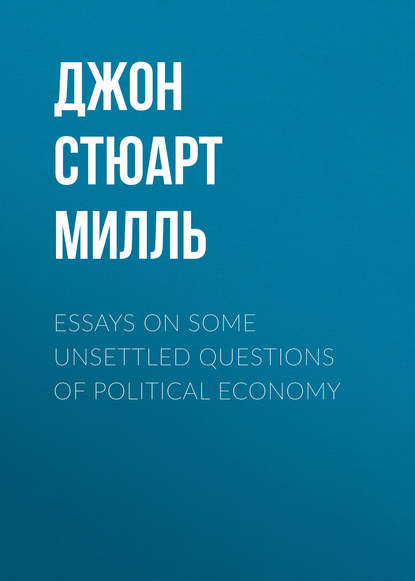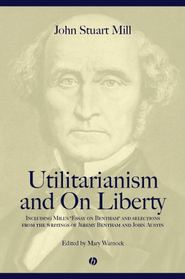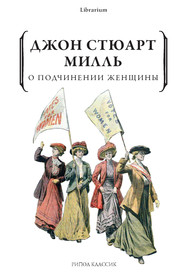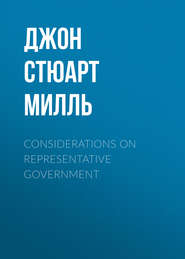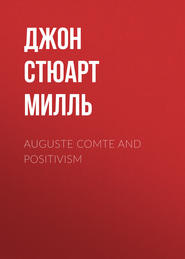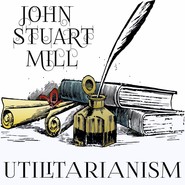По всем вопросам обращайтесь на: info@litportal.ru
(©) 2003-2024.
✖
Essays on some unsettled Questions of Political Economy
Настройки чтения
Размер шрифта
Высота строк
Поля
There is no doubt that our prohibiting the importation of a particular article, which, but for the prohibition, would have been imported, enables us to obtain our other imports at smaller cost. The article for which we have the greatest demand, and for which our demand is most increased by cheapness, is that which we should naturally import preferably to any other; now of this article we should import the quantity necessary to pay for our exports, on terms of interchange less advantageous to us than in the case of any other commodity. If our legislature prohibits this commodity, the other country will be obliged to offer any other article on easier terms, in order to force a sufficient demand for it to be an equivalent to what she purchases from us.
The steps of the process, money being used, would be these: – We prohibit the importation of linen. The exportation of cloth continues, but is paid for in money. Our prices rise, those in Germany fall, until silk, or some other article, can be imported from Germany cheaper than it can be produced at home, and in sufficient abundance to balance the export of cloth. Thus by sacrificing the cheapness of one commodity, we gain the cheapness of another: but we sacrifice a greater cheapness to gain a less, and we sacrifice cheapness in the article which we most want, and would import by preference, while our compensation is cheapness in an article which we either could produce more advantageously at home, or which we have so little desire for, that it requires a species of bounty on the article to create a demand.
Restrictions on importation do, however, tend to keep down the value and price of our remaining imports, and to keep up the nominal or money prices of all our other commodities, by retaining a greater quantity of money in the country than would otherwise be there. From this it obviously follows, that if the restrictions were removed, we should have to pay rather more for some of the articles which we now import, while those which we are now prevented from importing would cost us more than might be inferred from their present price in the foreign market. And general prices would fall; to the benefit of those who have fixed sums to receive; to the disadvantage of those who have fixed sums to pay; and giving rise, as a general fall of prices always does, to an appearance, though a temporary and fallacious one, of general distress [5 - This last possible effect of a sudden introduction of free trade, was pointed out in an able article on the Silk question, in a work of too short duration, the Parliamentary Review].
It is right to observe that the measures of the British Legislature which have been falsely characterised as measures of free trade, must, from their extremely insignificant extent, have produced far too little effect in increasing our importation, to have actually led, in any degree worth mentioning, to the results specified above.
It is of greater importance to take notice, that these effects may be entirely obviated, if foreign countries can be prevailed upon simultaneously to relax their restrictive systems, so as to create an immediate increase of demand for our exports at the present prices. It is true that exports and imports must, in the end, balance one another, and if we increase our imports, our exports will of necessity increase too. But it is a forced increase, produced by an efflux of money and fall of prices; and this fall of prices being permanent, although it would be no evil at all in a country where credit is unknown, it may be a very serious one where large classes of persons, and the nation itself, are under engagements to pay fixed sums of money of large amount.
10. The only remaining application of the principle set forth in this essay, which we think it of importance to notice specially, is the effect produced upon a country by the annual payment of a tribute or subsidy to a foreign power, or by the annual remittance of rents to absentee landlords, or of any other kind of income to its absent owners. Remittances to absentees are often very incorrectly likened in their general character to the payment of a tribute; from which they differ in this very material circumstance, that tribute, if not paid to a foreign country, is not paid at all, whereas rents are paid to the landlord, and consumed by him, even if he resides at home. The two kinds of payment, however, have a perfect resemblance to each other in such parts of their effects as we are about to point out.
The tribute, subsidy, or remittance, is always in goods; for, unless the country possesses mines of the precious metals, and numbers those metals among its regular articles of export, it cannot go on, year after year, parting with them, and never receiving them back. When a nation has regular payments to make in a foreign country, for which it is not to receive any return, its exports must annually exceed its imports by the amount of the payments which it is bound so to make. In order to force a demand for its exports greater than its imports will suffice to pay for, it must offer them at a rate of interchange more favourable to the foreign country, and less so to itself, than if it had no payments to make beyond the value of its imports. It therefore carries on the trade with less advantage, in consequence of the obligations to which it is subject towards persons resident in foreign countries.
The steps of the process are these. The exports and imports being in equilibrium, suppose a treaty to be concluded, by which the country binds itself to pay in tribute to another country, a certain sum annually. It makes, perhaps, the first payment by a remittance of money. This lowers prices in the paying country, and raises them in the receiving one: the exports of the tributary country increase, its imports diminish. When the efflux of money has altered prices in the requisite degree, the exports exceed the imports annually, by the amount of the tribute; and the latter, being added to the sum of the payments due, restores the balance of payments between the two countries. The result to the tributary country is a diminution of her share in the advantage of foreign trade. She pays dearer for her imports, in two ways, because she pays more money, and because that money is of higher value, the money incomes of her inhabitants being of smaller amount.
Thus the imposition of a tribute is a double burthen to the country paying it, and a double gain to that which receives it. The tributary country pays to the other, first, the tax, whatever be its amount, and next, something more, which the one country loses in the increased cost of its imports, the other gains in the diminished cost of its own.
Absenteeism, moreover, though not burthensome in the former of these ways, since the money is paid whether the receiver be an absentee or not, is yet disadvantageous in the second of the two modes which have been mentioned. Ireland pays dearer for her imports in consequence of her absentees; a circumstance which the assailants of Mr. M'Culloch, whether political economists or not, have not, we believe, hitherto thought of producing against him.
11. If the question be now asked, which of the countries of the world gains most by foreign commerce, the following will be the answer.
If by gain be meant advantage, in the most enlarged sense, that country will generally gain the most, which stands most in need of foreign commodities.
But if by gain be meant saving of labour and capital in obtaining the commodities which the country desires to have, whatever they may be; the country will gain, not in proportion to its own need of foreign articles, but to the need which foreigners have of the articles which itself produces.
Let us take, as an illustration of our meaning, the case of France and England. Those two nations, in consequence of the restrictions with which they have loaded their commercial intercourse, carry on so little trade with each other, as may almost, regard being had to the wealth and population of the two countries, be called none at all. If these fetters were at once taken off, which of the two countries would be the greatest gainer? England without doubt. There would instantly arise in France an immense demand for the cottons, woollens, and iron of England; while wines, brandies, and silks, the staple articles of France, are less likely to come into general demand here, nor would the consumption of such productions, it is probable, be so rapidly increased by the fall of price. The fall would probably be very great before France could obtain a vent in England for so much of her exports as would suffice to pay for the probable amount of her imports. There would be a considerable flow of the precious metals out of France into England. The English consumer of French wine would not merely save the amount of the duty which that wine now pays, but would find the wine itself falling-in prime cost, while his means of purchasing it would be increased by the augmentation of his own money income. The French consumer of English cottons, on the contrary, would not long continue to be able to purchase them at the price they now sell for in England. He would gain less, as the English would gain more, than might appear from a mere comparison between the present prices of commodities in the two countries.
Various consequences would flow from opening the trade between France and England, which are not expected, either by the friends or by the opponents of the present restrictive system. The wine-growers of France, who imagine that free trade would relieve their distress by raising the price of their wine, might not improbably find that price actually lowered. On the other hand, our silk manufacturers would be surprised if they were told that the free admission of our cottons and hardware into the French market, would endanger their branch of manufacture: yet such might very possibly be the effect. France, it is likely, could most advantageously pay us in silks for a portion of the large amount of cottons and hardware which we should sell to her; and though our silk manufacturers may now be able to compete advantageously, in some branches of the manufacture, with their French rivals, it by no means follows that they could do so when the efflux of money from France, and its influx into England, had lowered the price of silk goods in the French market, and increased all the expenses of production here.
On the whole, England probably, of all the countries of Europe, draws to herself the largest share of the gains of international commerce: because her exportable articles are in universal demand, and are of such a kind that the demand increases rapidly as the price falls. Countries which export food, have the former advantage, but not the latter. But our own colonies, and the countries which supply us with the materials of our manufactures, maintain a hard struggle with us for an equal share of the advantages of their trade; for their exports are also of a kind for which there exists a most extensive demand here, and a demand capable of almost indefinite extension by a fall of price. Contrary, therefore, to common opinion, it is probable that our trade with the colonies, and with the countries which send us the raw materials of our national industry, is not more but less advantageous to us, in proportion to its extent, than our trade with the continent of Europe. We mean in respect to the mere amount of the return to the labour and capital of the country; considered abstractedly from the usefulness or agreeableness of the particular articles on which the receivers may choose to expend it.
ESSAY II.
OF THE INFLUENCE OF CONSUMPTION ON PRODUCTION
Before the appearance of those great writers whose discoveries have given to political economy its present comparatively scientific character, the ideas universally entertained both by theorists and by practical men, on the causes of national wealth, were grounded upon certain general views, which almost all who have given any considerable attention to the subject now justly hold to be completely erroneous.
Among the mistakes which were most pernicious in their direct consequences, and tended in the greatest degree to prevent a just conception of the objects of the science, or of the test to be applied to the solution of the questions which it presents, was the immense importance attached to consumption. The great end of legislation in matters of national wealth, according to the prevalent opinion, was to create consumers. A great and rapid consumption was what the producers, of all classes and denominations, wanted, to enrich themselves and the country. This object, under the varying names of an extensive demand, a brisk circulation, a great expenditure of money, and sometimes totidem verbis a large consumption, was conceived to be the great condition of prosperity.
It is not necessary, in the present state of the science, to contest this doctrine in the most flagrantly absurd of its forms or of its applications. The utility of a large government expenditure, for the purpose of encouraging industry, is no longer maintained. Taxes are not now esteemed to be "like the dews of heaven, which return again in prolific showers." It is no longer supposed that you benefit the producer by taking his money, provided you give it to him again in exchange for his goods. There is nothing which impresses a person of reflection with a stronger sense of the shallowness of the political reasonings of the last two centuries, than the general reception so long given to a doctrine which, if it proves anything, proves that the more you take from the pockets of the people to spend on your own pleasures, the richer they grow; that the man who steals money out of a shop, provided he expends it all again at the same shop, is a benefactor to the tradesman whom he robs, and that the same operation, repeated sufficiently often, would make the tradesman's fortune.
In opposition to these palpable absurdities, it was triumphantly established by political economists, that consumption never needs encouragement. All which is produced is already consumed, either for the purpose of reproduction or of enjoyment. The person who saves his income is no less a consumer than he who spends it: he consumes it in a different way; it supplies food and clothing to be consumed, tools and materials to be used, by productive labourers. Consumption, therefore, already takes place to the greatest extent which the amount of production admits of; but, of the two kinds of consumption, reproductive and unproductive, the former alone adds to the national wealth, the latter impairs it. What is consumed for mere enjoyment, is gone; what is consumed for reproduction, leaves commodities of equal value, commonly with the addition of a profit. The usual effect of the attempts of government to encourage consumption, is merely to prevent saving; that is, to promote unproductive consumption at the expense of reproductive, and diminish the national wealth by the very means which were intended to increase it.
What a country wants to make it richer, is never consumption, but production. Where there is the latter, we may be sure that there is no want of the former. To produce, implies that the producer desires to consume; why else should he give himself useless labour? He may not wish to consume what he himself produces, but his motive for producing and selling is the desire to buy. Therefore, if the producers generally produce and sell more and more, they certainly also buy more and more. Each may not want more of what he himself produces, but each wants more of what some other produces; and, by producing what the other wants, hopes to obtain what the other produces. There will never, therefore, be a greater quantity produced, of commodities in general, than there are consumers for. But there may be, and always are, abundance of persons who have the inclination to become consumers of some commodity, but are unable to satisfy their wish, because they have not the means of producing either that, or anything to give in exchange for it. The legislator, therefore, needs not give himself any concern about consumption. There will always be consumption for everything which can be produced, until the wants of all who possess the means of producing are completely satisfied, and then production will not increase any farther. The legislator has to look solely to two points: that no obstacle shall exist to prevent those who have the means of producing, from employing those means as they find most for their interest; and that those who have not at present the means of producing, to the extent of their desire to consume, shall have every facility afforded to their acquiring the means, that, becoming producers, they may be enabled to consume.
These general principles are now well understood by almost all who profess to have studied the subject, and are disputed by few except those who ostentatiously proclaim their contempt for such studies. We touch upon the question, not in the hope of rendering these fundamental truths clearer than they already are, but to perform a task, so useful and needful, that it is to be wished it were oftener deemed part of the business of those who direct their assaults against ancient prejudices, – that of seeing that no scattered particles of important truth are buried and lost in the ruins of exploded error. Every prejudice, which has long and extensively prevailed among the educated and intelligent, must certainly be borne out by some strong appearance of evidence; and when it is found that the evidence does not prove the received conclusion, it is of the highest importance to see what it does prove. If this be thought not worth inquiring into, an error conformable to appearances is often merely exchanged for an error contrary to appearances; while, even if the result be truth, it is paradoxical truth, and will have difficulty in obtaining credence while the false appearances remain.
Let us therefore inquire into the nature of the appearances, which gave rise to the belief that a great demand, a brisk circulation, a rapid consumption (three equivalent expressions), are a cause of national prosperity.
If every man produced for himself, or with his capital employed others to produce, everything which he required, customers and their wants would be a matter of profound indifference to him. He would be rich, if he had produced and stored up a large supply of the articles which he was likely to require; and poor, if he had stored up none at all, or not enough to last until he could produce more.
The case, however, is different after the separation of employments. In civilized society, a single producer confines himself to the production of one commodity, or a small number of commodities; and his affluence depends, not solely upon the quantity of his commodity which he has produced and laid in store, but upon his success in finding purchasers for that commodity.
It is true, therefore, of every particular producer or dealer, that a great demand, a brisk circulation, a rapid consumption, of the commodities which he sells at his shop or produces in his manufactory, is important to him. The dealer whose shop is crowded with customers, who can dispose of a product almost the very moment it is completed, makes large profits, while his next neighbour, with an equal capital but fewer customers, gains comparatively little.
It was natural that, in this case, as in a hundred others, the analogy of an individual should be unduly applied to a nation: as it has been concluded that a nation generally gains in wealth by the conquest of a province, because an individual frequently does so by the acquisition of an estate; and as, because an individual estimates his riches by the quantity of money which he can command, it was long deemed an excellent contrivance for enriching a country, to heap up artificially the greatest possible quantity of the precious metals within it.
Let us examine, then, more closely than has usually been done, the case from which the misleading analogy is drawn. Let us ascertain to what extent the two cases actually resemble; what is the explanation of the false appearance, and the real nature of the phenomenon which, being seen indistinctly, has led to a false conclusion.
We shall propose for examination a very simple case, but the explanation of which will suffice to clear up all other cases which fall within the same principle. Suppose that a number of foreigners with large incomes arrive in a country, and there expend those incomes: will this operation be beneficial, as respects the national wealth, to the country which receives these immigrants? Yes, say many political economists, if they save any part of their incomes, and employ them reproductively; because then an addition is made to the national capital, and the produce is a clear increase of the national wealth. But if the foreigner expends all his income unproductively, it is no benefit to the country, say they, and for the following reason.
If the foreigner had his income remitted to him in bread and beef, coats and shoes, and all the other articles which he was desirous to consume, it would not be pretended that his eating, drinking, and wearing them, on our shores rather than on his own, could be of any advantage to us in point of wealth. Now, the case is not different if his income is remitted to him in some one commodity, as, for instance, in money. For whatever takes place afterwards, with a view to the supply of his wants, is a mere exchange of equivalents; and it is impossible that a person should ever be enriched by merely receiving an equal value in exchange for an equal value.
When it is said that the purchases of the foreign consumer give employment to capital which would otherwise yield no profit to its owner, the same political economists reject this proposition as involving the fallacy of what has been called a "general glut." They say, that the capital, which any person has chosen to produce and to accumulate, can always find employment, since the fact that he has accumulated it proves that he had an unsatisfied desire; and if he cannot find anything to produce for the wants of other consumers, he can for his own.
It is impossible to contest these propositions as thus stated. But there is one consideration which clearly shews, that there is something more in the matter than is here taken into the account; and this is, that the above reasoning tends distinctly to prove, that it does a tradesman no good to go into his shop and buy his goods. How can he be enriched? it might be asked. He merely receives a certain value in money, for an equivalent value in goods. Neither does this give employment to his capital; for there never exists more capital than can find employment, and if one person does not buy his goods another will; or if nobody does, there is over-production in that business, he can remove his capital, and find employment for it in another trade.
Every one sees the fallacy of this reasoning as applied to individual producers. Every one knows that as applied to them it has not even the semblance of plausibility; that the wealth of a producer does in a great measure depend upon the number of his customers, and that in general every additional purchaser does really add to his profits. If the reasoning, which would be so absurd if applied to individuals, be applicable to nations, the principle on which it rests must require much explanation and elucidation.
Let us endeavour to analyse with precision the real nature of the advantage which a producer derives from an addition to the number of his customers.
For this purpose, it is necessary that we should premise a single observation on the meaning of the word capital. It is usually defined, the food, clothing, and other articles set aside for the consumption of the labourer, together with the materials and instruments of production. This definition appears to us peculiarly liable to misapprehension; and much vagueness and some narrow views have, we conceive, occasionally resulted from its being interpreted with too mechanical an adherence to the literal meaning of the words.
The capital, whether of an individual or of a nation, consists, we apprehend, of all matters possessing exchangeable value, which the individual or the nation has in his or in its possession for the purpose of reproduction, and not for the purpose of the owner's unproductive enjoyment. All unsold goods, therefore, constitute a part of the national capital, and of the capital of the producer or dealer to whom they belong. It is true that tools, materials, and the articles on which the labourer is supported, are the only articles which are directly subservient to production: and if I have a capital consisting of money, or of goods in a warehouse, I can only employ them as means of production in so far as they are capable of being exchanged for the articles which conduce directly to that end. But the food, machinery, &c, which will ultimately be purchased with the goods in my warehouse, may at this moment not be in the country, may not be even in existence. If, after having sold the goods, I hire labourers with the money, and set them to work, I am surely employing capital, though the corn, which in the form of bread those labourers may buy with the money, may be now in warehouse at Dantzic, or perhaps not yet above ground.
Whatever, therefore, is destined to be employed reproductively, either in its existing shape, or indirectly by a previous (or even subsequent) exchange, is capital. Suppose that I have laid out all the money I possess in wages and tools, and that the article I produce is just completed: in the interval which elapses before I can sell the article, realize the proceeds, and lay them out again in wages and tools, will it be said that I have no capital? Certainly not: I have the same capital as before, perhaps a greater, but it is locked up, as the expression is, and not disposable.
When we have thus seen accurately what really constitutes capital, it becomes obvious, that of the capital of a country, there is at all times a very large proportion lying idle. The annual produce of a country is never any thing approaching in magnitude to what it might be if all the resources devoted to reproduction, if all the capital, in short, of the country, were in full employment.
If every commodity on an average remained unsold for a length of time equal to that required for its production, it is obvious that, at any one time, no more than half the productive capital of the country would be really performing the functions of capital. The two halves would relieve one another, like the semichori in a Greek tragedy; or rather the half which was in employment would be a fluctuating portion, composed of varying parts; but the result would be, that each producer would be able to produce every year only half as large a supply of commodities, as he could produce if he were sure of selling them the moment the production was completed.
This, or something like it, is however the habitual state, at every instant, of a very large proportion of all the capitalists in the world.
The number of producers, or dealers, who turn over their capital, as the expression is, in the shortest possible time, is very small. There are few who have so rapid a sale for their wares, that all the goods which their own capital, or the capital which they can borrow, enables them to supply, are carried off as fast as they can be supplied. The majority have not an extent of business, at all adequate to the amount of the capital they dispose of. It is true that, in the communities in which industry and commerce are practised with greatest success, the contrivances of banking enable the possessor of a larger capital than he can employ in his own business, to employ it productively and derive a revenue from it notwithstanding. Yet even then, there is, of necessity, a great quantity of capital which remains fixed in the shape of implements, machinery, buildings, &c, whether it is only half employed, or in complete employment: and every dealer keeps a stock in trade, to be ready for a possible sudden demand, though he probably may not be able to dispose of it for an indefinite period.
This perpetual non-employment of a large proportion of capital, is the price we pay for the division of labour. The purchase is worth what it costs; but the price is considerable.
Of the importance of the fact which has just been noticed there are three signal proofs. One is, the large sum often given for the goodwill of a particular business. Another is, the large rent which is paid for shops in certain situations, near a great thoroughfare for example, which have no advantage except that the occupier may expect a larger body of customers, and be enabled to turn over his capital more quickly. Another is, that in many trades, there are some dealers who sell articles of an equal quality at a lower price than other dealers. Of course, this is not a voluntary sacrifice of profits: they expect by the consequent overflow of customers to turn over their capital more quickly, and to be gainers by keeping the whole of their capital in more constant employment, though on any given operation their gains are less.
The reasoning cited in the earlier part of this paper, to show the uselessness of a mere purchaser or customer, for enriching a nation or an individual, applies only to the case of dealers who have already as much business as their capital admits of, and as rapid a sale for their commodities as is possible. To such dealers an additional purchaser is really of no use; for, if they are sure of selling all their commodities the moment those commodities are on sale, it is of no consequence whether they sell them to one person or to another. But it is questionable whether there be any dealers in whose case this hypothesis is exactly verified; and to the great majority it is not applicable at all. An additional customer, to most dealers, is equivalent to an increase of their productive capital. He enables them to convert a portion of their capital which was lying idle (and which could never have become productive in their hands until a customer was found) into wages and instruments of production; and if we suppose that the commodity, unless bought by him, would not have found a purchaser for a year after, then all which a capital of that value can enable men to produce during a year, is clear gain – gain to the dealer, or producer, and to the labourers whom he will employ, and thus (if no one sustains any corresponding loss) gain to the nation. The aggregate produce of the country for the succeeding year is, therefore, increased; not by the mere exchange, but by calling into activity a portion of the national capital, which, had it not been for the exchange, would have remained for some time longer unemployed.
Thus there are actually at all times producers and dealers, of all, or nearly all classes, whose capital is lying partially idle, because they have not found the means of fulfilling the condition which the division of labour renders indispensable to the full employment of capital, – viz., that of exchanging their products with each other. If these persons could find one another out, they could mutually relieve each other from this disadvantage. Any two shopkeepers, in insufficient employment, who agreed to deal at each other's shops so long as they could there purchase articles of as good a quality as elsewhere, and at as low a price, would render the nation a service. It may be said that they must previously have dealt, to the same amount, with some other dealers; but this is erroneous, since they could only have obtained the means of purchasing by being previously enabled to sell. By their compact, each would gain a customer, who would call his capital into fuller employment; each therefore would obtain an increased produce; and they would thus be enabled to become better customers to each other than they could be to third parties.
It is obvious that every dealer who has not business sufficient fully to employ his capital (which is the case with all dealers when they commence business, and with many to the end of their lives), is in this predicament simply for want of some one with whom to exchange his commodities; and as there are such persons to about the same degree probably in all trades, it is evident that if these persons sought one another out, they have their remedy in their own hands, and by each other's assistance might bring their capital into more full employment.
We are now qualified to define the exact nature of the benefit which a producer or dealer derives from the acquisition of a new customer. It is as follows: —
1. If any part of his own capital was locked up in the form of unsold goods, producing (for a longer period or a shorter) nothing at all; a portion of this is called into greater activity, and becomes more constantly productive. But to this we must add some further advantages.





